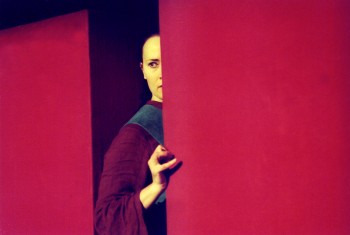Archive for 2010
Valta Suomessa [Power in Finland]
5 August 2010 | Mini reviews, Reviews
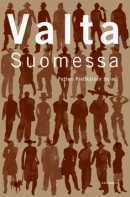 Valta Suomessa
Valta Suomessa
[Power in Finland]
Toim. [Ed. by] Petteri Pietikäinen
Helsinki: Gaudeamus, 2010. 287 p., ill.
ISBN 978-952-495-143-2
33 €, paperback
The authors have been involved in the Academy of Finland’s ‘Power and society in Finland’ research programme, which supports the multidisciplinary study of the historical impact that changes in Finnish society have on its power structures and on those who exert power in Finland. Among the changes are Finland’s accession to the European Union and the internationalisation of corporate and business life. Major power management and policy decisions have often been made without extensive public debate. The articles include studies of the historical changes in economic history and women’s status; other subjects include the conflicts between the forestry industry and nature conservationists; energy policy and the relatively low level of opposition to nuclear power among Finns, labour relations and the opportunities that citizens have to influence media content.
Matti Rämö: Polkupyörällä Intiassa. Lehmiä, jumalia ja maantiepölyä [Cycling in India. Cows, gods, and road dust]
30 July 2010 | Mini reviews, Reviews
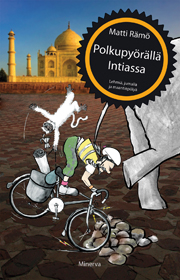 Polkupyörällä Intiassa. Lehmiä, jumalia ja maantiepölyä
Polkupyörällä Intiassa. Lehmiä, jumalia ja maantiepölyä
[Cycling in India. Cows, gods, and road dust]
Helsinki: Minerva Kustannus Oy, 2010. 301 p., ill.
ISBN 978-952-492-335-4
€ 27.90, hardback
The author decides to take a pinch of the ashes of his dead mother to India’s Varanasi, the city of pilgrims on the banks of the Ganges, and at the same time visit his daughter at an international high school on the country’s west coast. Rämö takes his bicycle on the plane to Delhi and in the course of a month cycles more than 2,600 kilometres, from Delhi to Mumbai. The cyclist is challenged by the heat and humidity, the chaotic traffic, the awkward sections of road and the endless thirst for knowledge on the part of curious bystanders – but his observations are deeper than those of the average travel author, as he worked in India in third world research during the 1980s and 1990s. In the summer of 2007 he completed a four months’ cycle tour of the Sahara, travelling some 9,600 kilometres, and published a book about his experiences (Rengasrikkoja Saharassa, ‘Punctures in the Sahara’, Minerva, 2008). In spite of the shorter length of the Indian journey, the author thinks it possessed a higher difficulty factor.
Lassi Saressalo: Pois Suomesta [Out of Finland]
12 July 2010 | Mini reviews, Reviews
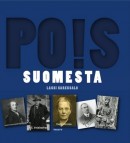 Pois Suomesta – Suomesta paenneita, karkotettuja, väkisin vietyjä, laittomasti lähteneitä
Pois Suomesta – Suomesta paenneita, karkotettuja, väkisin vietyjä, laittomasti lähteneitä
[Out of Finland – refugees, deportees, abductees, illegal emigrants]
Tampere, Traff Kustannus, 2010. 297 p.
ISBN 978-952-99079-7-7
€ 29, hardback
Dr Lassi Saressalo, head of the Finnish Local Heritage Federation, has gathered a large collection of stories about people who were deported or abducted from Finland, or who fled as refugees. The examples relate to several periods of Finland’s history, including Swedish and Russian rule and the period since independence in 1918. People have had to leave Finland at different times for different reasons: some fled the cruelty of conquerors or conscription, others were forced to leave because of their political views or patriotic aims, either on their own initiative or by the government. The most recent cases discussed in the book date from the period following the end of the Second World War. The book is accompanied by a (Finnish-language) website, which provides additional background information on the events that are described as well as a forum for discussion.
What the critic said
9 July 2010 | Letter from the Editors

Illustration by Joan Barrás
‘Pay no attention to what the critics say. A statue has never been erected in honour of a critic,’ said the Finnish composer Jean Sibelius.
No, probably not; but people still read what the critics write – and, sometimes, also what they wrote fifty or a hundred years ago.
An annual list of professions most highly valued by the public in Finland is always headed by surgeons. Shepherds generally feature at the bottom of the list. But critics fare none too well, either – a couple of years ago they were ranked between butchers and gravediggers. Which, of course, can be interpreted, in metaphorical terms, either as hilarious or tragicomical. More…
Raija-Liisa Mäkelä: Minä, muilutetun tytär. Puoli vuosisataa Neuvostoliitossa [Abductee’s daughter. Half a century in the Soviet Union]
5 July 2010 | Mini reviews, Reviews
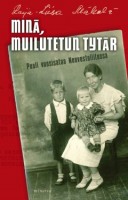 Minä, muilutetun tytär. Puoli vuosisataa Neuvostoliitossa
Minä, muilutetun tytär. Puoli vuosisataa Neuvostoliitossa
[Abductee’s daughter. Half a century in the Soviet Union]
Jyväskylä: Minerva, 2009. 321 p, ill.
ISBN 978-952-492-294-4
€ 24, hardback
During the period 1910-1930 many people defected from Finland to Russia/USSR both for political reasons and in the hope of better living standards. The labourite leader Yrjö Mäkelä was forcibly abducted across the border by the radical Finnish right-wing anti-Communist Lapua People’s Movement. Mäkelä’s fiancée also emigrated to the USSR, where the couple married and had two children. Raija-Liisa Mäkelä was born in Petrozavodsk, close to the Finnish border, in 1938, but never saw her father, who was interned in one of Stalin’s prisons and executed, although innocent. In the Soviet Union the Mäkelä family had both to carry the label of ‘enemy of the people’ and to endure majority (Russian) population’s antipathy towards Finns. The memoirs cover the family’s experiences from 1930 until 1990, when the author was able to move to Finland. In addition to providing evidence of remarkable survival skills, the book contains an interesting portrayal of Finnish widows and their families living in Petrozavodsk and nearby Sortavala.
Misery me
Extracts from the collection of short prose, Mielensäpahoittaja (‘Taking offense’, WSOY, 2010)
Past pushing up daisies
Well, yeah, so I took offense when the doctor said that considering my age I’m in tip-top shape. His theory was that my 25-kilometre ski circuits would keep an old coot like me in shape, if they didn’t kill me first. He said if I were to start just sitting on the couch and waiting, then the Reaper would be on my back in no time.
I don’t ski for my health. I ski because it’s pretty in the forest, and when a body is sweating he doesn’t think a whole lot. More…
Asko Sahlberg: He [They]
28 June 2010 | Mini reviews, Reviews
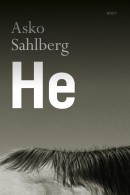 He
He
[They]
Helsinki: WSOY, 2010. 120 p.
ISBN 978-0-36170-2
€ 24.10, hardback
The Finland-Swedish author Asko Sahlberg (born 1964), who lives in Gothenburg in Sweden, has had an interesting, if uneven, career over the past decade. Sahlberg’s particular strengths lie in his precise use of language and the rhythm of his prose. Since his debut novel, Pimeän ääni (‘The sound of darkness’, 2000), part of Sahlberg’s output has been concerned with meditations on existence and the purging of emotions, with the rest delving into historical themes, such as his 2004 novel Tammilehto (‘Oak Grove’) which is set in the year 1918, and He, his ninth book, which takes place in 1809. (An extract from his novel Eksyneet (‘The lost’) was published in Books from Finland, 2/2002.) In He Sahlberg uses a first-person narrative technique with multiple narrators, which feels justified in this highly distilled portrait of a family. The plot is set against the backdrop of the Finnish War (1808–1809), waged by King Gustav IV Adolf of Sweden and Alexander I, Emperor of Russia. Henrik and Erik are brothers fighting on opposite sides, their mother drowns her sorrows hard liquor, and Anna, the neighbour’s daughter, ends up with the wrong brother. The end of this novella is surprising, dealing with the anatomy of revenge and deceit.
Face to face
24 June 2010 | This 'n' that
 You can now keep up with what’s new at Books from Finland on Facebook.
You can now keep up with what’s new at Books from Finland on Facebook.
And remember: you can also get Books from Finland articles delivered straight to your inbox or smartphone by signing up to our RSS feed, or subscribing to our regular newsletter – the new one is, as we used to say, currently in the typewriter and will be with you soon.
Let’s keep in touch!
Leena Lander: Liekin lapset [Children of the flames]
23 June 2010 | Mini reviews, Reviews
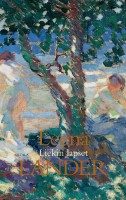 Liekin lapset
Liekin lapset
[Children of the flames]
Helsinki: Siltala, 2010. 419 p.
ISBN 978-952-231-022-1
€ 27.30, hardback
Novels by Leena Lander (born 1959) have been translated into more than 20 languages. Liekin lapset is a family saga, told in two parallel timelines. One is a portrait of a small coastal community in south-western Finland from the turn of the 20th century up to the end of the Finnish civil war in 1918 and the years following it. Life in the area is governed by a sawmill and a manor, socially dividing the community in two. Saida, Joel, Anders and Arvi grow up together, the future workers dreaming of socialism and the sons of the manor playing warlords. In the contemporary strand of the story, Sakari Salin, Saida’s grandson, begins researching his grandmother’s life. The documents reveal some rather remarkable events: here, the author defends the rights of those who were on the losing side in the civil war and creates a lively – as well as historically grounded – portrait of the times. The dialogues and characters in this novel work well, and the structure supports a complex system of psychosocial interconnections, in which the present finds an explanation in the past.
Get out of my Face(book)!
23 June 2010 | Columns, Non-fiction, Tales of a journalist
 Much is made of the importance of Facebook and the other social media. But what are they, asks journalist and self-confessed internet cynic Jyrki Lehtola in his regular ‘Journalist’s Tales’ column; and, more important, is there any point to them?
Much is made of the importance of Facebook and the other social media. But what are they, asks journalist and self-confessed internet cynic Jyrki Lehtola in his regular ‘Journalist’s Tales’ column; and, more important, is there any point to them?
This journal and this text appear only on the internet, and you can comment upon the elegant style of this text, as well as its fascinating content, at the bottom of the piece. If worst comes to worst, the apathy it arouses can even give rise to debate.
Does all that mean that I’m a part of… the social media? And if so, could someone tell me what social media mean and how I can get out of here? More…
Need to go?
23 June 2010 | This 'n' that
 No traveller can avoid toilets, as the internet service about.com (run by the company that owns the New York Times) points out on its Scandinavia travel website.
No traveller can avoid toilets, as the internet service about.com (run by the company that owns the New York Times) points out on its Scandinavia travel website.
Thus, it may be reassuring to know that ‘the days of outhouses are numbered’, and in Finland there are no squat toilets, according to the experiences of the editor, Terri Mapes. (The concept of ‘Finlandic restrooms’, however, is a new one to us – as is, for that matter, the adjective ‘Finlandic’.)
However, under the title ‘Bad Things About Toilets in Finland’ you’ll be informed about the possibility of outhouses without running water, should you choose the option of wandering into the wildernesses. And as toilets at airports or train stations may occasionally smell bad, it is advisable to use the bathroom at your hotel, unless your needs are urgent of course. More…
The gender of the soul
Scenes from the play Kuningatar K / Queen C
Characters:
Christina, the Queen
Friend
The Queen Mother
Karl Gustav, the Count [Christina’s suitor, the King-to-be]
Descartes, philosopher
Official
Man
The King
Oxenstierna, Per Brahe
A choir of midwives
The play can be performed with six actors (3 female, 3 male). Other ways of dividing the roles are possible. All stage directions may be altered.
1. Prologue
The eels’ court
CHRISTINA
If eels had a court then a great female eel would sit in the centre and the little males would writhe about like seaweed around the throne. However they would not be envious of the queen, because they would know that if they swam up into rivers and lakes, into fresh waters, they themselves would gradually become females, great and heavy, and would be able to rule and close into their great embrace all the small little gentlemen. They just have to wait.
KARL GUSTAV
I don’t know. What I do know is that a great black eel, as thick as a rope, was pulled out of the well last night and the Queen looked at its silver stomach and its thrashing tail, but the eel looked the Queen in the eyes and in the heart and since then she has never been the same. More…
Peter von Bagh: Sodankylä ikuisesti [Sodankylä forever]
11 June 2010 | Mini reviews, Reviews
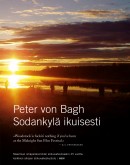 Sodankylä ikuisesti
Sodankylä ikuisesti
[Sodankylä forever]
Helsinki: WSOY, 2010. 308 p., ill.
ISBN 978-951-0-36290-7
€ 52, hardback
The Midnight Sun Film Festival is the world’s northernmost film festival. Held in Sodankylä, Lapland, it is now 25 years old. This scrapbook includes the text of speeches given by filmmakers as well as a wealth of material about the films shown over the years. Much of this material is based on the morning discussion panels which the festival’s director, film historian and author Peter von Bagh, has chaired with his guests. More than one hundred film directors, from Samuel Fuller to Wim Wenders, talk about the background and influences in their work. Von Bagh has constructed dialogues between directors who did not actually attend the same sessions; he calls these conversations – sometimes between the living and the dead – ‘heavenly dialogues’. The Festival was founded by Finnish film directors Aki and Mika Kaurismäki and Anssi Mänttäri in collaboration with the municipality of Sodankylä. The light summer nights and laid-back atmosphere at the festival delight the speakers and audience members every year. In the words of the American filmmaker D.A. Pennebaker, ‘Woodstock is fuckin’ nothing if you’ve been at the Midnight Sun Film Festival.’
Reference database ARTO
11 June 2010 | In the news
ARTO, a reference database of articles published in around 600 Finnish magazines and journals, created and updated by the National Library of Finland, is now available without charge and functions also in English.
For example, if you’d like to find out if there are any articles on Mika Waltari published in printed Books from Finland between 1967 and 2008, this is now possible.
(Please note that the articles themselves are not available through this database – if you would like to obtain copies of pieces from Books from Finland, for example, you will have to contact either the reprographic services at the National Library, or us: info@booksfromfinland.fi.)

